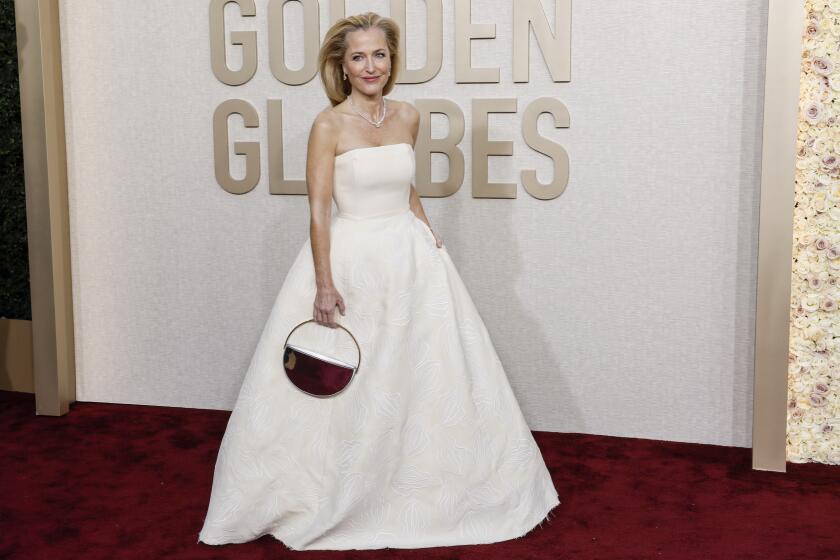Hollywood upset that U.S.-made ‘Minari’ is in Golden Globes’ foreign-language category
One of the most critically acclaimed American films of 2020, “Minari,” won’t compete in the Golden Globes’ best picture categories after it was entered as a foreign-language film.
If that sentence didn’t make any sense to you, you’re not alone.
For the record:
12:36 p.m. Dec. 23, 2020An earlier version of this post stated that the Hollywood Foreign Press Assn. had made the decision to place “Minari” in the Golden Globes’ foreign-language category. In fact, producers entered the film for consideration in that category last month.
On Tuesday, Variety reported that “Minari,” which is mostly in Korean, would not be up for best picture at the Golden Globes, sparking outrage among champions of the award-winning family drama set in the United States. The film was submitted in the foreign-language category, per Globes rules.
Still, luminaries across the entertainment industry have challenged the controversial categorization of director Lee Isaac Chung’s festival darling about a Korean American family starting a farm in 1980s Arkansas.
In a scathing tweet, actor and producer Daniel Dae Kim called the classification “the film equivalent of being told to go back to your country when that country is actually America.” A similar debate ignited last year around director Lulu Wang’s 2019 film “The Farewell,” which features mostly Mandarin dialogue.
According to the Golden Globes website, the HFPA identifies foreign-language entries as “feature length films (70 minutes or longer) with at least 51% non-English dialogue track first released in their country of origin during the 14-months period ... prior to the Awards.”
The “country of origin” for both “Minari” and “The Farewell” is the United States.
The requirements also stipulate that such films can be considered “in all other categories except best motion picture drama and best motion picture musical or comedy which are for English-language films exclusively.”
“I have not seen a more American film than #Minari this year,” Wang tweeted Tuesday. “It’s a story about an immigrant family, IN America, pursuing the American dream. We really need to change these antiquated rules that characterizes American as only English-speaking.”
Wang was among several who emphasized the many American components of “Minari,” both onscreen and behind the scenes. The emotional feature, starring “The Walking Dead” actor Steven Yeun and Yeri Han, debuted in January at the Sundance Film Festival, where it collected both the audience award and the grand jury prize in the U.S. dramatic competition.
“Just for the record, Minari is an American movie written and directed by an American filmmaker set in America with an American lead actor and produced by an American production company,” tweeted actor Simu Liu, who is set to star in Marvel’s “Shang-Chi and the Legend of the Ten Rings.”
“Minari was written and directed by an American and produced by American production companies,” director and cinematographer Jenn Ravenna Tran wrote. “It is an American immigration story. The lead is American. English is spoken in the film. And not every American household speaks only English.”
Democratic California Rep. Ted Lieu also weighed in on the controversy, writing, “Dear @goldenglobes: Please change your name to ‘Golden Globes Only for English Speaking People,’ because that would be more accurate.”
“#Minari is an American movie about a Korean American family in Arkansas,” he added. “Why does a best picture have to be in English? Globe is in your name. Get it?”
See more reactions to the Globes news below.
More to Read
Only good movies
Get the Indie Focus newsletter, Mark Olsen's weekly guide to the world of cinema.
You may occasionally receive promotional content from the Los Angeles Times.











